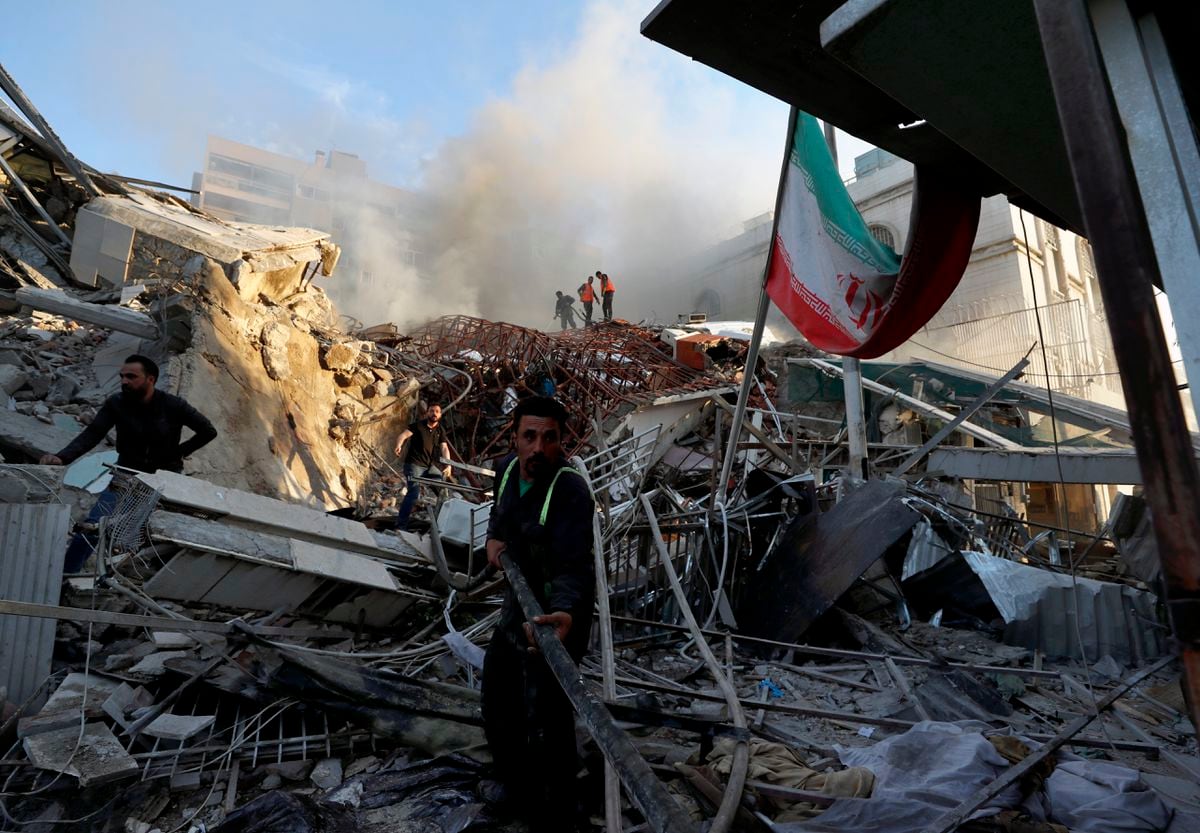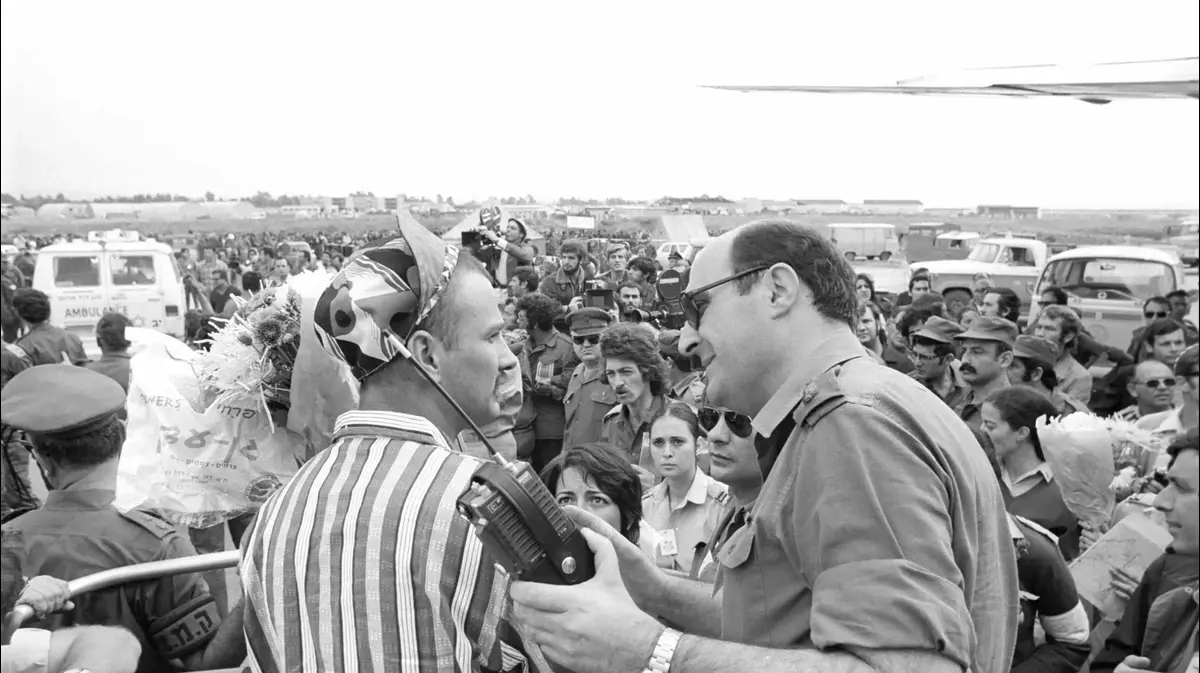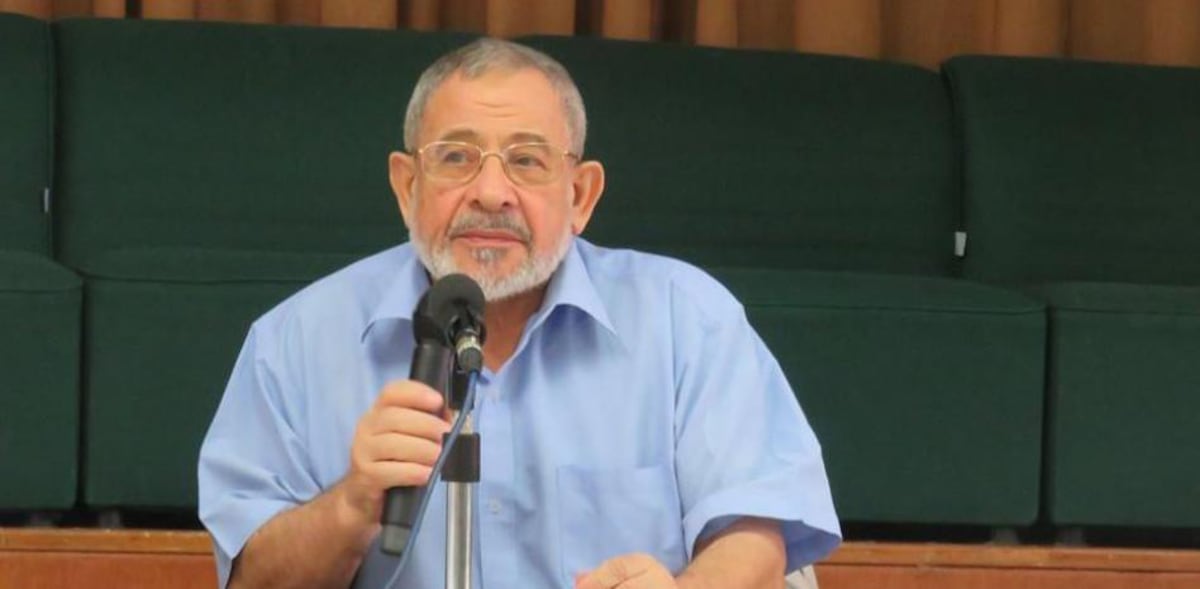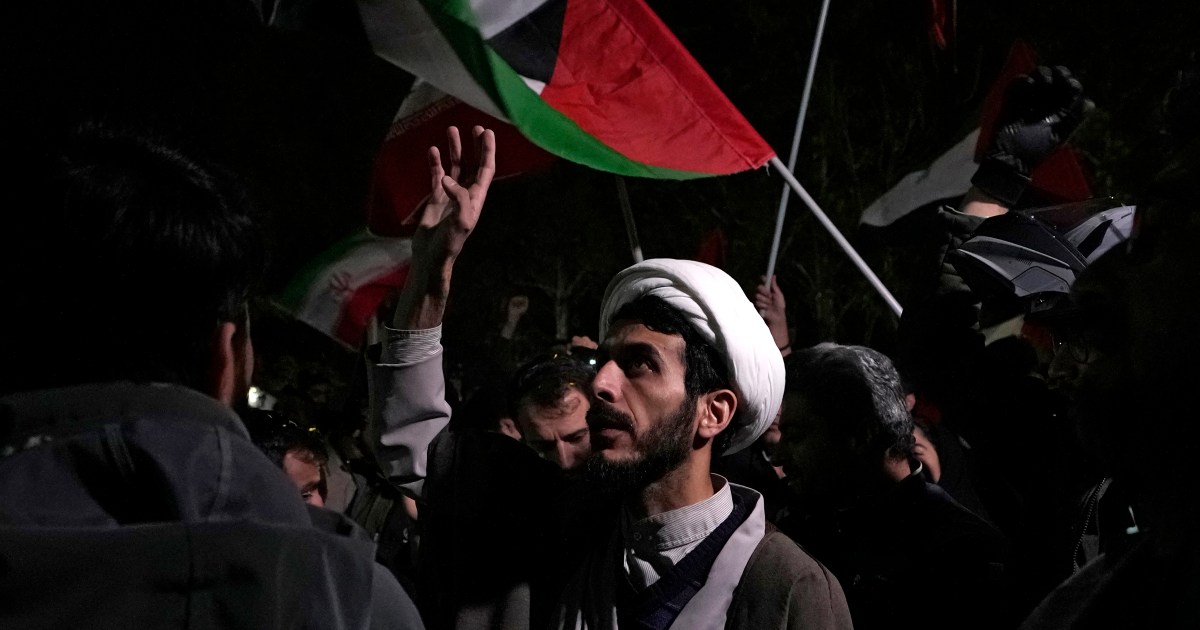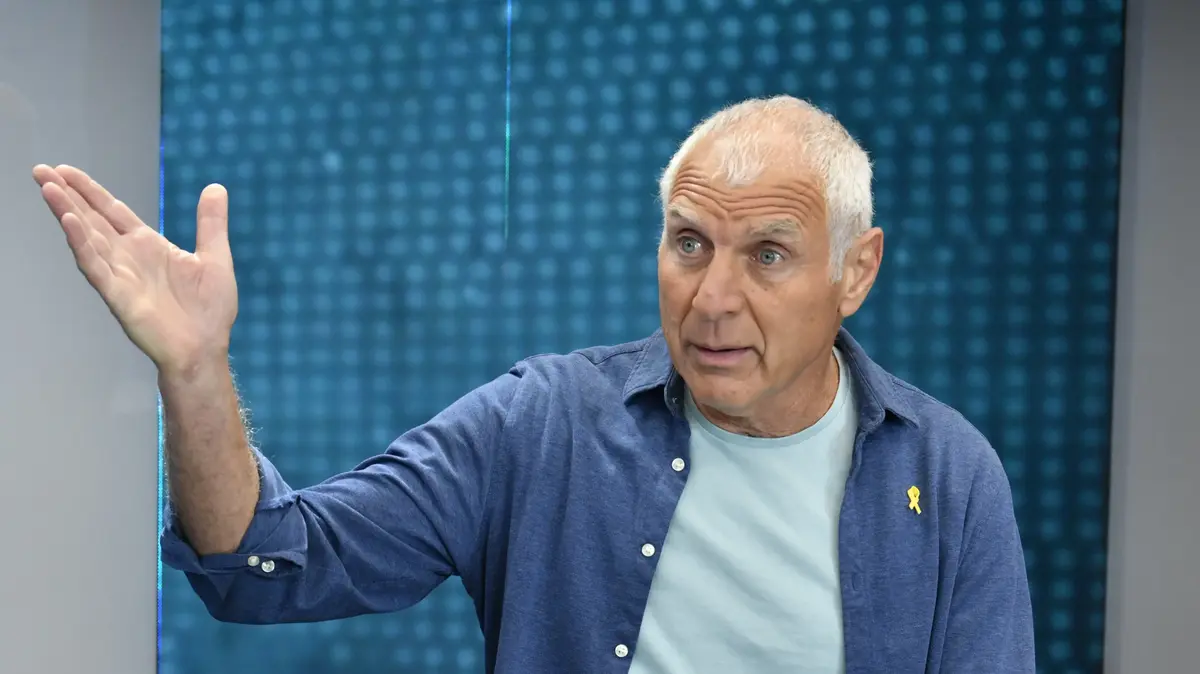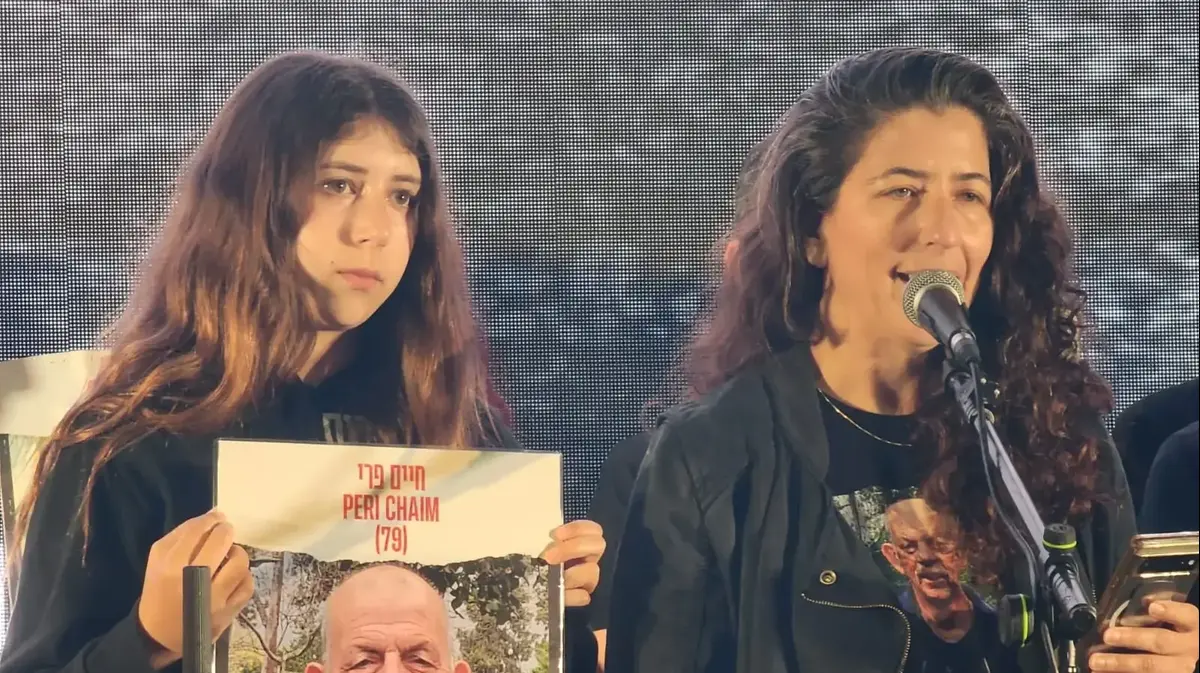Luna Fernández, along with four of her five children and two Spanish orphans, at the door of her shop in the Al Roj countryside (Syria), in March 2021. Natalia Sancha
Hafida Dadach, 57, a Moroccan resident in the Madrid neighborhood of Moratalaz, wanted to stop talking about her grandchildren a long time ago out of prudence.
She always had doubts about the benefits of telling the story of her son Mohamed el Ouriachi, who died in 2015 in Syria after joining that adventure of terror that was the Syrian-Iraqi caliphate.
El Ouriachi left three children on the road - two of them born in Spain;
the third, in Syrian territory―, stranded in a country at war.
Their mother, Hannane Draoui, had a fourth child in the Arab country with another man.
Then she too died.
Hafida awaits the four brothers in Madrid.
In her penultimate conversation with EL PAÍS, in April 2019, she said this: "Here we will give them vaccines, education, sports, everything they need, do you think they will have returned by summer?"
That summer never came.
Children are still living poorly in northeast Syria.
This week, Hafida finally spoke again after learning that the Spanish government had agreed to repatriate them, information that this newspaper advanced: "Yes, you can say that for me it would be the happiest day of my life," she said.
Three and a half years after the Islamic State (ISIS, in its old acronym in English) was defeated in its last stronghold, in Baguz, the Government has not brought back any of the Spaniards held in custody of the Kurdish militias.
It was the battle of Baguz that led to Hafida's grandchildren being locked up in ISIS camps for relatives.
Four other women with ties to Spain and 16 minors in their care also ended up there.
They are Yolanda Martínez, Lubna Miludi, Lubna Fares and Luna Fernández.
During the captivity, the families in Spain have maintained a certain pessimism and frustration at the lack of news from the Executive on the repatriation of the women and, above all, the children, since the rest of the European Union partners do They have already managed the return of many of their nationals.
Luis Martínez, 75, is the father of Yolanda, 37 and four children, investigated by the National Court for her links with a jihadist cell.
“The news of her possible repatriation gives us a little hope,” Luis says in a telephone conversation, “we have struggled for many years, but you know what happens with politicians.”
What happened in the spring of 2019 —after the Spanish women held in the camps of the Syrian Democratic Forces, Kurdish-Arab militias supported by the United States, were located and identified— was that the Spanish security forces contacted the families to do a first follow up.
After some visits and calls, according to the relatives of these young women, contact was lost.
Nor did they receive much information when they requested it from the Ministry of Foreign Affairs.
They finally found out this week, thanks to the press, that they were closer to seeing their family at home.
“I don't even think Yolanda knows,” continues Luis Martínez, “what interests me is that they come back, but I have my doubts.
They are attacking where they are, a bombardment and no one will have to be brought in”.
Indeed, Turkey has resumed its offensive in the region after an attack in Istanbul on the 13th, for which it blames the Kurdish militias in Syria.
Luis is suspicious;
He is not the only family member who still remembers those words by Josep Borrell, still as Spanish Foreign Minister, in October 2019, in which he assured that they were going to bring them all to Spain.
"Until I touch the children," says Yolanda Martínez's father, "there is nothing, neither you nor I know what is happening."
The father of her grandchildren is Omar el Harshi, a Moroccan nationalized Spanish, imprisoned in a Kurdish jail.
Conditions for foreign women and minors held in ISIS camps for relatives are difficult.
They live in tents or tents subject to bad weather and vandalism;
without the necessary sanitary, hygienic or nutritional support for the children, without education, with few possibilities of communicating with the outside ―unless they have a mobile phone, in contravention of the prohibition of the Kurdish authorities― and dependent on the assistance that may come from some way from their countries of origin, that something arrives.
The four children that Hafida is waiting for in Moratalaz, all of them orphans, live under the care of Luna Fernández, 34, who is also being investigated for her relationship with a jihadist cell in Madrid.
Luna also has five children;
The eldest, 15-year-old Abdurahman, is separated from his family and is confined in a center where the Kurdish authorities keep minors from the age of 12 or 13.
Manuela Grande, 50, Luna's mother, acknowledges, like Luis or Hafida, that she doesn't know more, that she doesn't want to talk much, that she only hopes that the government's plan to repatriate them is "God willing, right."
She glimpses more hope than in previous conversations, but cautiously.
“I don't want to relive the same thing again.
It is pleasant news that I have learned from you ”, she says in conversation with EL PAÍS,“ but bring them now ”.
The father of the children that Manuela is expecting is Mohamed Amin el Aabou, also included in the investigations of the National Court and killed in the defense of the last stronghold of ISIS in Baguz in 2019. Kawtar, her sister, also confirms that they have heard the news of the possible return of her sister-in-law and the children this week.
"Let's hope they act and it's over," she says in an exchange of messages.
The relatives of Yolanda, Luna and Lubna Miludi, a 29-year-old from Ceuta, are defended by criminal lawyer José Luis Laso.
Yolanda and Luna are together with the children in the Al Roj camp, in northeastern Syria, near the border with Iraq.
Lubna Miludi, together with her seven-year-old son, in Al Hol, about 100 kilometers to the south, following the Syrian-Iraqi border.
Her father, in their last conversation a year ago, maintained that she wanted to return and that he was aware that he would have to answer to justice.
The fourth woman with ties to Spain is Lubna Fares, a 43-year-old Moroccan and mother of three children of the Spanish jihadist of Iranian origin Navid Sanati, who was killed in a bombing by the US-led anti-ISIS coalition in the summer of 2016. Lubna she escaped from Al Hol with her children in February 2020. Her whereabouts are unknown.
Dozens of women have managed to flee the camps in the last three years through smugglers in the west of the Arab country, around the province of Idlib, under the control of armed groups linked to the former Syrian affiliate of Al Qaeda.
Subscribe to continue reading
Read without limits
Keep reading
I'm already a subscriber


/cloudfront-eu-central-1.images.arcpublishing.com/prisa/AJG7IZEA3JGX3NF54WRHHWVVPU.jpg)
